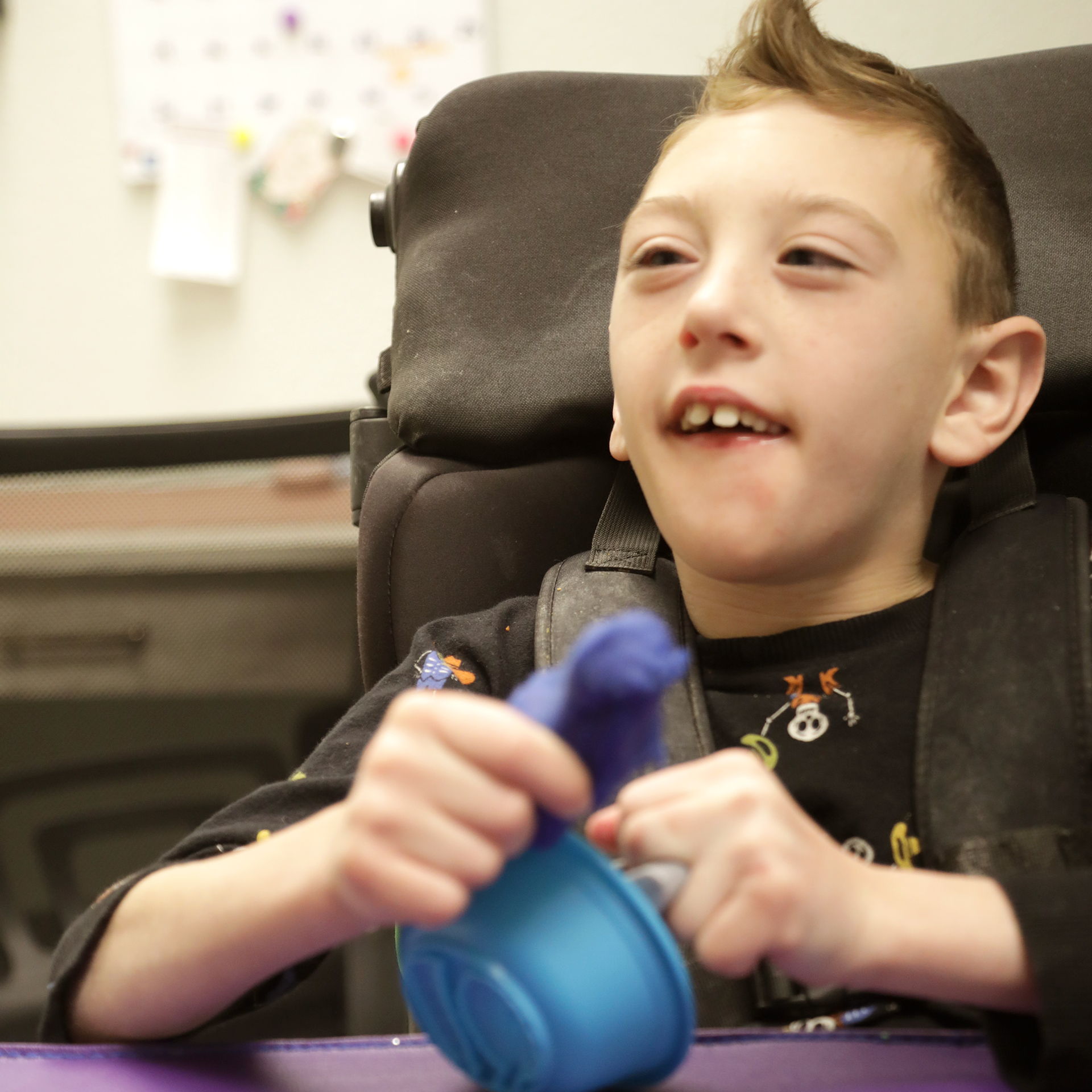Strengths and Abilities In Autism


Understanding the Bright Side of Autism
Autism spectrum disorder (ASD) is often discussed with a focus on challenges; however, a comprehensive perspective reveals a spectrum of innate strengths and abilities that are equally significant. Recognizing and nurturing these qualities not only fosters acceptance but also highlights the immense potential within the autistic community. This article explores the diverse talents, intrinsic abilities, and the positive impact autistic people can have across various settings, emphasizing the importance of a strengths-based approach.
Core Strengths and Talents of Autistic Individuals

What are some strengths and abilities commonly observed in autistic individuals?
Autistic individuals often possess a remarkable range of strengths and skills that set them apart. Many show early reading abilities, known as hyperlexia, allowing them to decode written language at a young age. They tend to learn quickly and excel in memorization, especially in areas connected to their special interests. Visual thinking and pattern recognition are common, supporting skills in science, engineering, and mathematical reasoning.
Their attention to detail and high levels of reliability make them dependable in professional and personal contexts. Autistic people frequently exhibit creativity, a sense of wonder, and alternative approaches to problem-solving. Honesty and integrity are character traits often reinforced by their strong moral compass. These qualities reveal that autism encompasses a spectrum of abilities that can contribute positively to society.
What innate abilities are associated with autism that can be an asset in various contexts?
Many innate talents embedded in autism serve as valuable assets. Exceptional visual and logical reasoning abilities enable heightened pattern recognition and innovative thinking. The shared precision and deep focus of autistic individuals facilitate mastery in specialized fields such as music, mathematics, and visual arts.
In terms of character, honesty, consistency, and reliability foster trustworthiness in relationships and the workplace. Sensory perceptions can be extraordinary—ranging from perfect pitch in music to heightened visual sensitivities and olfactory discrimination—adding further value in artistic and scientific domains.
Recognizing and cultivating these innate skills often leads to significant achievements and societal contributions, especially when supported by inclusive environments and educational strategies.
How do strengths and abilities manifest in the workplace for autistic individuals?
In many work settings, autistic individuals excel through their focus, technical skills, and creativity. Their ability to hyperfocus helps them solve complex problems efficiently, often generating innovative solutions. Their honesty and straightforward communication style promote transparency and trust within teams.
Many autistic employees show exceptional organizational skills and work diligently on routine or detail-oriented tasks. Their keen observation and systematic thinking often lead to high-quality outputs, particularly in areas like coding, accounting, engineering, and data analysis.
When workplaces adopt supportive accommodations and recognize these strengths, autistic individuals can thrive, contributing unique perspectives that enhance organizational performance and foster diversity.
How can understanding autism strengths promote acceptance and a strengths-based perspective?
Emphasizing the strengths of autistic individuals shifts societal perception from focusing solely on challenges to celebrating potential. This perspective fosters greater inclusion, respect, and appreciation of neurodiversity.
By recognizing abilities such as exceptional memory, artistic talent, or analytical skills, stakeholders—including educators, employers, and caregivers—can create environments that nurture talents.
This approach boosts self-esteem among autistic people, encouraging independence and participation in various life domains. It also challenges stereotypes and promotes policies that value neurodiversity, driving societal change toward a more inclusive outlook.
How do sensory strengths and unique perceptual abilities contribute to the talents of autistic individuals?
Many autistic people demonstrate heightened sensory perception. Visual hypersensitivity enables intense color perception and detailed visual processing. Some possess perfect pitch or are highly adept at identifying complex sounds, greatly benefiting musical and auditory sciences.
Enhanced olfactory and tactile discrimination contribute to artistic pursuits and scientific exploration. These sensory capabilities often translate into specialized skills, enriching fields like music production, art, research, and technology.
Harnessing these perceptual strengths through tailored supports can unlock potential and enable autistic individuals to make significant contributions in their chosen fields.
In what ways do interests and special talents enhance the well-being and social integration of autistic individuals?
Deep interests foster a sense of mastery and confidence, boosting well-being and reducing anxiety. They serve as gateways to social interaction, as shared passions facilitate connections with like-minded peers.
Special interests relating to science, arts, or technology often lead to academic achievements and career paths, reinforcing a sense of purpose. Engaging regularly with passions offers joy and fulfillment, promoting mental health and resilience.
Moreover, these pursuits open avenues for social participation, community involvement, and recognition, fostering a positive self-image and belonging.
What role do character traits such as honesty, loyalty, and dedication play in the lives of autistic individuals?
Honest and loyal behaviors reflect core character traits commonly observed in autism. These qualities promote trust, dependability, and consistency in relationships, both personal and professional.
Autistic individuals tend to demonstrate a strong work ethic and dedication, persevering through tasks and challenges despite difficulties. Their reliability ensures they are valued team members and friends.
Such traits lay a foundation for meaningful social bonds and professional success, especially when nurtured in supportive environments that appreciate integrity and commitment.
| Aspect | Description | Examples |
|---|---|---|
| Strengths in Cognitive Skills | Exceptional reasoning, memory, and pattern recognition | Science and math proficiency, quick learning |
| Sensory Perception | Heightened sensitivities and perceptual abilities | Perfect pitch, color intensity, scent detection |
| Creativity | Artistic talents and innovative thinking | Visual arts, music composition, inventive problem-solving |
| Character Traits | Honesty, loyalty, dedication | Trustworthy relationships and persistent work ethic |
| Focus and Routine | Deep concentration and preference for order | Hyperfocus on interests, adherence to routines |
| Social and Emotional Strengths | Moral integrity and authenticity | Strong sense of justice, non-judgmental listening |
Focusing on these distinctive strengths encourages collaborative efforts to support, include, and celebrate autistic individuals' talents. Tailored strategies that leverage these abilities can promote personal growth, societal participation, and overall well-being.
Applied Perspectives: Autism in Education and Employment

How do strengths and abilities manifest in the workplace for autistic individuals?
Autistic individuals bring a range of strengths to the workplace that can be leveraged for organizational success. Many demonstrate heightened focus and an intense ability to concentrate on tasks, often leading to high productivity levels. Their creativity and pattern recognition skills support innovative problem-solving and process improvements.
Honesty, reliability, and a strong sense of justice make them trustworthy team members who value transparency. Hyperfocus allows some to excel in complex or detailed projects, sometimes exceeding typical expectations. Their unique perspectives enable fresh approaches to routine challenges, often resulting in more efficient workflows and potential cost savings.
When supported by inclusive policies and tailored accommodations, autistic employees can thrive. Providing sensory-friendly environments, clear communication, and opportunities for focused work helps them maximize their natural abilities. As a result, organizations gain dedicated, detail-oriented, and innovative contributors.
| Strengths in the Workplace | How They Enhance Performance | Support Strategies |
|---|---|---|
| Focus and concentration | Increased productivity and quality | Quiet work spaces, flexible schedules |
| Creativity and pattern recognition | Innovative solutions and problem-solving | Clear instructions, visual supports |
| Honesty and reliability | Building trust and transparency | Consistent routines, explicit feedback |
| Deep specialization or hyperfocus | Advanced expertise in niche areas | Respect for deep interests, tailored tasks |
These attributes demonstrate the significant advantages of recognizing and nurturing autistic talents within professional settings.
The Neurodiversity Movement: Embracing Strengths and Potential

How can understanding autism strengths promote acceptance and a strengths-based perspective?
Recognizing the unique strengths of autistic individuals is essential for fostering a more accepting and inclusive society. Instead of focusing solely on challenges such as social communication difficulties or sensory sensitivities, a strengths-based approach highlights their talents, such as exceptional attention to detail, deep focus, creativity, and impressive memory skills.
This shift in perception helps to break down harmful stereotypes and promotes the idea that autism is a natural variation in human cognition. By emphasizing abilities like artistic talents, technical skills, and pattern recognition, society begins to see autistic people as capable contributors rather than just individuals needing support.
Furthermore, recognizing strengths empowers autistic individuals themselves. It boosts self-esteem and encourages self-awareness, motivating them to pursue activities and careers aligned with their innate abilities. This approach supports meaningful engagement, social participation, and lifelong learning.
Incorporating strengths into educational programs and daily environments ensures that autistic individuals are valued for their potential, leading to increased inclusion and reduced stigma. Overall, understanding and promoting autism strengths pave the way for a society that respects neurodiversity and celebrates differences.
What role do organizations play in fostering a strengths-based view of autism?
Organizations dedicated to neurodiversity, such as Unique Community Services, play a vital role in advocating for and cultivating a strengths-based perspective on autism. These organizations recognize the importance of individual talents and work actively to nurture autistic strengths through tailored educational, social, and employment programs.
By creating inclusive environments, such organizations enable autistic people to develop and showcase their abilities in areas such as arts, sciences, technology, and problem-solving. They also promote awareness about the diverse gifts present within the autism spectrum, shifting societal focus from deficits to potential.
Advocacy efforts by these groups influence public policies, encouraging workplaces and educational institutions to adopt neurodiversity-friendly practices. They foster community connections, provide resources for skill development, and support self-advocacy among autistic individuals.
Through these initiatives, organizations help dismantle stereotypes and foster a culture that values neurodiversity. The result is a broader societal understanding that autism encompasses a wide range of talents, making acceptance and support more accessible.
How does a strengths-based view affect societal perceptions of autism?
Adopting a strengths-based perspective significantly influences how society perceives autism. Instead of viewing autism as primarily a collection of deficits or disorders, this approach highlights the positive attributes and diverse abilities of autistic individuals.
This shift encourages acceptance, reducing stigma and promoting the idea that neurodiversity is a natural, valuable form of human variation. It appeals to the recognition that autistic strengths—such as detailed-oriented thinking, excellent memory, artistic talents, and superior pattern recognition—can contribute meaningfully to various aspects of society.
Highlighting these abilities fosters greater inclusion in workplaces, schools, and communities. It inspires innovations and adaptive strategies that leverage autistic talents, enriching societal diversity.
Moreover, a strengths-based view supports policy changes and societal attitudes that celebrate individuality instead of conforming to normative standards. Ultimately, this perspective fosters a more respectful, supportive environment where autistic people are appreciated for their unique contributions and potential.
The Power of Focus and Deep Interests in Autism

How do strengths and abilities manifest in the workplace for autistic individuals?
Many autistic people bring unique strengths to professional environments. They often exhibit intense focus, which allows them to concentrate deeply on tasks for extended periods. Their analytical skills, attention to detail, and pattern recognition can lead to innovative problem-solving and high-quality work.
Honesty, reliability, and a strong sense of justice foster trustworthiness among colleagues. These traits, combined with their dedication, often result in increased productivity, especially when their hyperfocus is directed toward work-related goals.
Autistic employees may also offer fresh perspectives and systematic approaches that boost organizational efficiency. When workplaces adopt inclusive policies and accommodations, such as clear routines or sensory adjustments, autistic individuals can thrive and significantly contribute to their teams and organizations.
What role do special interests and hyperfocus play in the strengths of autistic individuals?
Hyperfocus, a trait where attention becomes intensely directed at a specific activity, allows autistic individuals to develop a depth of knowledge and skill. This concentration can lead to mastery in fields like science, mathematics, arts, or technology.
Special interests serve as pathways to expertise, often resulting in highly skilled individuals who excel in niche areas. For example, an autistic person passionate about music may develop exceptional pitch recognition, while another with a fascination with patterns may become highly skilled in coding or visual arts.
Supporting these interests helps build confidence and self-esteem. They often lead to academic achievements or career opportunities, fostering a sense of purpose and societal contribution. Recognizing and nurturing such passions can unlock untapped potential, benefiting individuals and society alike.
How do special interests influence societal perceptions of autistic strengths?
When autistic individuals demonstrate expertise in specific areas through their intense interests, it shifts societal views from perceiving autism solely as a set of challenges to recognizing it as a source of talent. Excelling in fields like mathematics, art, music, or technology through focused passions highlights the positive aspects of autism.
These achievements challenge stereotypes by proving that deep interests can lead to mastery and innovation. Celebrating these talents fosters greater acceptance and inclusion, demonstrating that autism is accompanied by valuable skills and abilities.
Public recognition of autistic strengths rooted in interests encourages more supportive environments where talents are nurtured. It promotes a strengths-based view, emphasizing abilities over deficits and inspiring societal appreciation for neurodiversity.
| Aspect | Manifestation | Example |
|---|---|---|
| Focus | Intense concentration on specific tasks | Extended periods working on a complex project |
| Expertise | Mastery of niche interests | Recognized talent in music, math, or art |
| Societal Impact | Changing perceptions and promoting inclusion | Celebrating achievements in specialized fields |
Understanding and leveraging the deep interests and hyperfocus of autistic individuals can greatly enhance their personal fulfillment and societal contributions. It also encourages environments that recognize diverse strengths, fostering an inclusive society that values neurodiversity.
Fostering a Strengths-Based Society
By recognizing and cultivating the innate strengths and talents of autistic individuals, society can shift towards a more inclusive and respectful understanding of autism. Emphasizing abilities over deficits promotes confidence, self-esteem, and meaningful participation in education, employment, and community life. Supportive environments, tailored interventions, and awareness initiatives are vital in unlocking the full potential of neurodivergent individuals. Celebrating neurodiversity not only enriches our collective experience but also harnesses the unique contributions of each person, fostering innovation, empathy, and societal growth.
References
- Autistic strengths | Autistica
- Autism strengths & Challenges - Embrace Autism
- Strengths and abilities in autism - Altogether Autism
- The Strengths and Abilities of Autistic People in the Workplace - PMC
- the survey of autistic strengths, skills, and interests - PMC
- Thinking and learning strengths in autistic children and pre-teens
- Focus on strengths as well as challenges | Autistica
- Strengths that Come with Autism and Why You Should Care | Otsimo
- The Superpowers of Autism: Embracing Strengths and Abilities
Recent articles

What to Expect at Your First Therapy Session
Discover what your child’s first therapy session looks like, from rapport building to goal setting, and how families can feel confident starting care.

Celebrating Small Wins: How Therapy Helps Kids Build Confidence All Year Long
Learn why small wins in therapy matter, how they boost your child’s confidence, and simple ways families can celebrate progress all year long.

Empowering Missoula Children to Grow With Confidence and Connection
Learn how ABA therapy in Missoula helps children build communication, independence, and confidence through personalized, family‑centered support at Advanced Therapy Clinic.

Compassionate Pediatric Therapy in Butte, Montana
A welcoming place where every child’s potential is celebrated

How Pediatric Therapy Helps Kids Thrive across Montana and Wyoming
A supportive guide for families exploring therapy options in Billings, Butte, Missoula or Sheridan.

How to Choose the Right Pediatric Therapy Clinic in Billings, Montana
A Parent‑Friendly Guide To Finding The Best Support For Your Child

